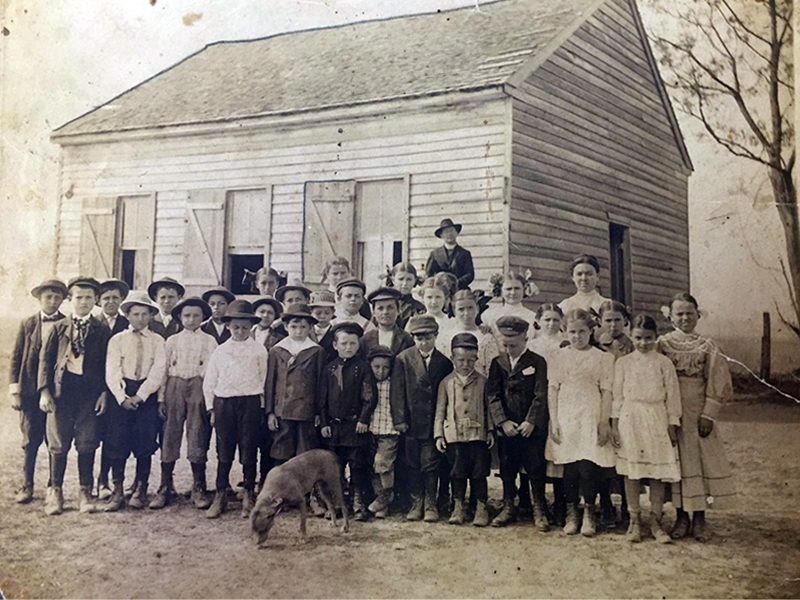Many folks in Northwest Arkansas know that Tontitown was founded by Italian immigrants who had first come to the United States lured by promises of land and opportunity at Sunnyside Plantation in Southeast Arkansas. Conditions at Sunnyside, though, fell far short of the promises, prompting several dozen families to migrate again to an area west of Springdale and establish Tontitown. Historian Lauren Braun-Strumfels of Cedar Crest College will explore another side of the collapse of the Sunnyside experience — its profound impact on U.S. migration policy — in a talk at 6 p.m. Wednesday, Oct. 25, at the Tontitown City Hall (235 E. Henri De Tonti Blvd.), sponsored by the U of A Humanities Center and the Tontitown Historical Museum.
Titled "How the Italians of Sunnyside shaped U.S. Immigration Policy over Ten Critical Years, 1891-1901," Braun-Strumfels' talk will argue that the larger reasons why Italians came to Arkansas, and how the migrants and their government responded to the conditions they encountered there, are essential for understanding how the United States began restricting immigration from Europe and became a gatekeeping nation.
The talk is drawn from her recently published book Partners in Gatekeeping: How Italy Shaped U.S. Immigration Policy over Ten Pivotal Years, 1891-1901 (Athens: University of Georgia Press, 2023). Both the talk and the book are products of Braun-Strumfels' intensive research in both English and Italian language sources held in the United States and Rome. Indeed, the records collected by Italian diplomats at the turn of the 20th century are essential to tell the distinctly transnational story of Italians in Arkansas and the South.
Braun-Strumfels is associate professor of history at Cedar Crest College in Allentown, Pennsylvania. A graduate of the College of William and Mary, she received her Ph.D. in U.S. history from the University of Illinois, Chicago. Braun-Strumfels has been an affiliated fellow at the American Academy in Rome and held the Fulbright Research Lectureship in U.S. History in the Department of Political Science at the University of Rome III.
University of Arkansas Humanities Center: The University of Arkansas Humanities Center, in the Fulbright College of Arts and Sciences, promotes cross-disciplinary research and inquiry in the humanities, sponsors programs that engage humanities scholars and the wider public in conversations about critical topics, and fosters a strong role for the humanities in an increasingly global society.
Tontitown Historical Museum: The Tontitown Historical Museum opened in 1986 and is housed in the former home of two of Tontitown's original settlers, the sisters Mary and Zelinda Bastianelli. The Museum contains photographs, documents, and artifacts belonging to the original Italian settlers of Tontitown. The Tontitown Historical Museum is open Wednesday 9 a.m. to 1 p.m., and Friday, Saturday, and Sunday, 1-4 p.m., or by appointment. Educational tours are available. Researchers are encouraged to call the museum to make an appointment at 479-361-9800. The Tontitown Historical Museum is located at 251 E. Henri de Tonti Blvd. For more information, call the museum at 479-361-9800 or City Hall at 479-361-2700.
Topics
Contacts
Michael Pierce, associate professor of history
University of Arkansas Humanities Center
479-575-6760, mpierce@uark.edu
